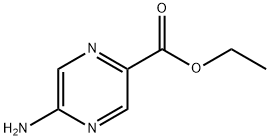If taking omega - 3 and vitamin D supplements can truly delay biological aging by 3 to 4 months within three years, how exactly do these supplements interact with our body's cells and biological processes? Do they influence gene expression related to aging? Also, are there differences in the effectiveness of different forms of omega - 3 supplements, such as fish oil or algae - based supplements? And what about the dosage? Is there an optimal amount of these supplements to achieve this anti - aging effect? Additionally, considering individual variations in metabolism, how can we ensure that everyone can benefit from this supposed anti - aging property of omega - 3 and vitamin D supplements?
Are taking omega-3 and vitamin D supplements really that miraculous, being able to delay biological aging by 3 to 4 months within three years?
Related Products More >
-
- CNY equest For Quotation
-
- CNY equest For Quotation
-
- CNY equest For Quotation
-
- 90-05-1
- equest For Quotation
-
- 67-97-0
- equest For Quotation
- 25kg/Cardboard Drum
-
- 67-97-0
- equest For Quotation
- 1kg,25kgor according to customer's detail requirement.
-
- 67-97-0
- equest For Quotation
- 25kg/carton
-
- 67-97-0
- equest For Quotation



 沪ICP备2021018848号-5
沪ICP备2021018848号-5

The research was led by clinical scientist Heike Bischoff-Ferrari from the University of Zurich in Switzerland and renowned anti-aging researcher Steve Horvath from Altos Labs in the US. They analyzed data from 777 participants over 70 years old in the DO-HEALTH trial which took place in five European countries from 2012 to 2014. The participants were divided into 8 groups.
After collecting blood samples before and at the end of the trial and analyzing them with four epigenetic clocks, they found that taking omega-3 supplements can slow down the aging rate of three epigenetic clocks, and this effect has nothing to do with the participants' gender, age or body mass index. Combining vitamin D, omega-3 and exercise reduced participants' biological aging by 2.9 to 3.8 months in 3 years according to the PhenoAge epigenetic clock.
Previously, the DO-HEALTH trial also found that omega-3 supplements can reduce the fall rate by 10% and the infection rate by 13% compared to those who didn't take supplements. Combining omega-3, vitamin D supplements and exercise can reduce the risk of cancer.
However, Gustavo Duque, a geriatrician from McGill University in Montreal, Canada, thought that although the interventions slow down the aging clock, there's no evidence of a direct impact on lifespan or health. Heike Bischoff-Ferrari said that slowing down biological aging by three to four months may seem small, but it can translate into important public health benefits, like reducing the incidence of some age-related health problems.
The researchers also admitted the limitations of their study. There's no golden standard for measuring biological aging. And the DO-HEALTH trial only ran for 3 years, so the long-term significance of omega-3 intervention on epigenetic clocks is still unclear. Also, taking too much omega-3 can increase the risk of atrial fibrillation, and about 1 gram per day is considered safe.
So, in conclusion, while taking omega-3 and vitamin D supplements can delay biological aging to some extent, there are still many aspects to be explored regarding its impact on lifespan and health, and we need to be cautious about the dosage.
Now, omega - 3 is a nutrient our body needs but can't make on its own, so we have to get it from food, like deep - sea fish such as salmon, trout, herring, and some plants like algae, walnuts, and soybeans. Back from 2012 - 2014, the DO - HEALTH trial was carried out in five European countries to look at how supplements and exercise affect the elderly. Heike Bischoff - Ferrari and her team analyzed data from 777 participants over 70 years old. These folks were split into 8 different groups: a placebo group, a vitamin D group, an omega - 3 group, a simple home exercise program (SHEP) group, a vitamin D + omega - 3 group, a vitamin D + SHEP group, an omega - 3 + SHEP group, and a vitamin D + omega - 3 + SHEP group.
The research team collected blood samples from the participants both before and after the trial. Then, they used four different epigenetic clocks to analyze these samples. These epigenetic clocks measure biological aging by looking at the methylation levels in our DNA. And guess what? The results showed that taking omega - 3 supplements could slow down the aging rate of three of these epigenetic clocks. And this effect didn't depend on whether the person was male or female, how old they were, or what their body mass index was. According to one of the epigenetic clocks called PhenoAge, when you combine vitamin D, omega - 3, and exercise, it can reduce biological aging by 2.9 - 3.8 months over 3 years.
The earlier DO - HEALTH trial also found some other cool things. Omega - 3 supplements could cut the fall rate by 10% and the infection rate by 13% compared to those not taking the supplements. And when you combine omega - 3, vitamin D supplements, and exercise, it can lower the risk of getting cancer. But here's the thing. Gustavo Duque, a geriatrician from McGill University in Montreal, Canada, said that even though these interventions slow down the aging clock, there's no solid proof that they directly affect lifespan or health. Heike Bischoff - Ferrari, on the other hand, said that even though slowing down biological aging by three to four months might seem like a small thing, it could lead to some important public health benefits, like reducing the number of age - related health problems.
The researchers were honest about the limits of their study too. There's no perfect way to measure biological aging. In this trial, they used the best - validated epigenetic clocks, which are the best we have in the field right now. Also, the DO - HEALTH trial only lasted for 3 years. So, we still don't know what the long - term effects of omega - 3 intervention on epigenetic clocks are. And another thing to be careful of is that taking too much omega - 3 can increase the risk of atrial fibrillation. It's said that about 1 gram per day is a safe amount. So, overall, taking omega - 3 and vitamin D supplements might help slow down biological aging, but there's still a lot we need to figure out about how it affects our lifespan and health, and we should be careful with the amount we take.